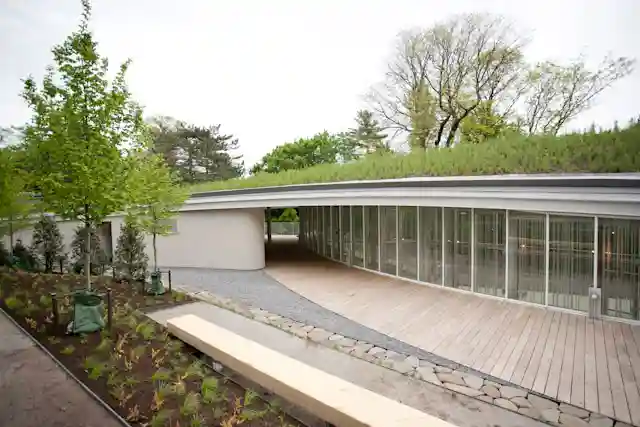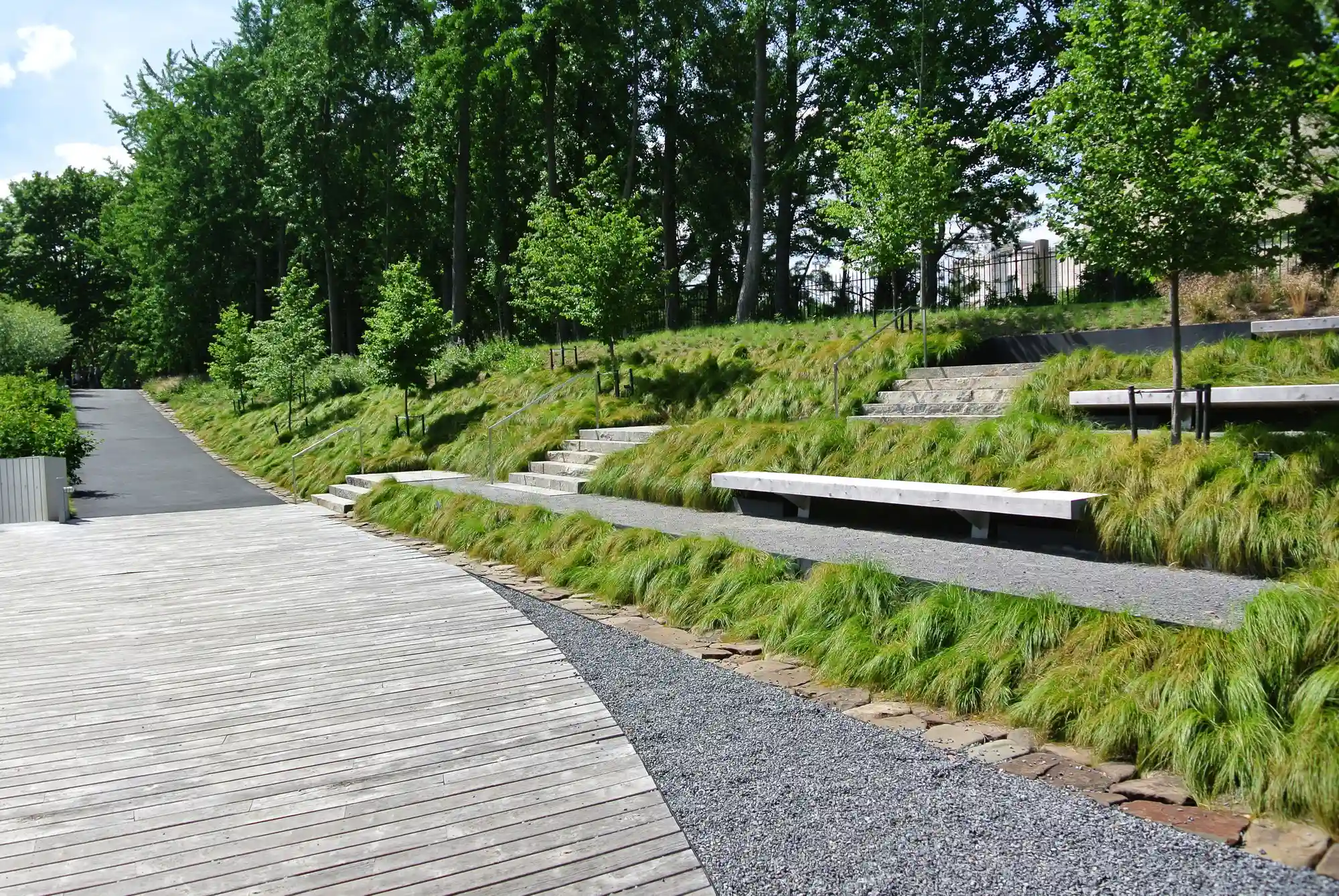Among all the options, Black Locust Wood stands above the rest — an American-grown hardwood that delivers unmatched strength, longevity, and eco-responsibility. While tropical hardwoods like ipe wood (from the ipe tree) were once popular, they now face significant environmental restrictions and even outright bans. Other options like sassafras wood have appeal but fall short in durability and performance.
This guide explains why Black Locust is the superior choice, how it compares to ipe and sassafras, and why 5/4 deck boards made from Black Locust are the ideal balance of strength, affordability, and sustainability.
Why Black Locust Wood Leads the Pack
Black Locust wood is often called “America’s most durable hardwood” — and for good reason.
- Unmatched Durability – Naturally rot- and insect-resistant without chemical treatment. A properly installed Black Locust deck can last 50+ years.
- Sustainably Harvested in the USA – Locally sourced, reducing transportation emissions and avoiding tropical deforestation.
- Lacey Act Compliant – Black Locust is harvested and sold in full compliance with the U.S. Lacey Act, meaning it meets strict federal laws preventing illegal logging and trade of timber.
- Low Maintenance – No need for frequent sealing unless you wish to preserve its warm golden tone.
- Cost-Effective Luxury – Offers the beauty and density of tropical hardwoods at a lower cost, with better availability.
Black Locust’s natural hardness, strength, and eco-friendliness make it a clear winner for anyone looking to build a long-lasting, sustainable deck.

The Decline of Ipe: Why It’s No Longer the Right Choice
For years, ipe wood was marketed as the “king” of hardwood decking due to its density and rot resistance. However, the environmental and legal reality has shifted dramatically:
- Ipe Is Now Banned/Prohibited – Due to severe overharvesting and illegal logging in tropical rainforests, many regions and organizations now prohibit or discourage its use. Some municipalities and sustainable building programs outright ban ipe in decking projects.
- Lacey Act Risks – Much of the ipe entering the U.S. has been linked to illegal logging operations, making it a risky choice for importers, distributors, and builders.
- Heavy Environmental Toll – The ipe tree can take over 100 years to mature, and harvesting it has contributed to deforestation and loss of biodiversity in the Amazon.
- High Cost, Low Accessibility – Due to bans, restrictions, and shipping challenges, ipe is harder to source and far more expensive than Black Locust.
Bottom line: Even before bans and restrictions, ipe’s environmental footprint was enormous. Today, it’s no longer a viable — or legal — option in many projects. Black Locust delivers the same durability with none of the legal or environmental baggage.
Sassafras Wood: Attractive, But Not for Heavy Use
Sassafras wood has a distinctive grain and is lightweight, making it easy to work with. However:
- Lower Durability – Sassafras is far less resistant to rot and pests than Black Locust.
- Higher Maintenance – Needs sealing and ongoing care to prevent weathering and insect damage.
- Best for Light-Duty Applications – Works well for trim or decorative features but struggles in heavy-traffic decking environments.
Bottom line: Sassafras offers charm and ease of use, but it simply cannot match Black Locust’s strength and longevity for a primary decking surface.
5/4 Deck Boards: The Sweet Spot for Black Locust
When selecting deck boards, 5/4 deck boards (finishes at 1 inch thick) strike an ideal balance of performance and affordability.
- Strong but Lightweight – Thick enough for structural strength in most residential decks without adding unnecessary bulk.
- Cost-Effective – Uses less material than thicker boards while still delivering decades of service life.
- Perfect for Black Locust – Because Black Locust is already incredibly strong and stable, 5/4 boards perform beautifully and last for generations.
Sustainability: Black Locust Sets the Standard
For eco-conscious homeowners and builders, Black Locust is the gold standard:
- Locally Grown & Harvested – Avoids the environmental toll of shipping tropical hardwoods across oceans.
- Zero Chemical Treatments Needed – Naturally resists decay, insects, and moisture.
- Lacey Act Compliant – Fully legal and ethically sourced. You’ll never face compliance issues when building with Black Locust.
Ipe and other tropical hardwoods often fail these tests, leading to legal risk and environmental harm. Sassafras, while lighter in impact than ipe, simply can’t match the durability of Black Locust.
Cost and Availability
- Black Locust Wood – Competitive pricing, readily available from U.S. suppliers, and built to last decades.
- Ipe Wood – Significantly more expensive, harder to source, and banned in many areas.
- Sassafras Wood – Inexpensive but short-lived, leading to higher replacement costs over time.

The Verdict: Black Locust is the Smart, Legal, and Sustainable Choice
When it comes to durability, sustainability, legality, and cost, Black Locust wood decking is unmatched.
It provides the luxury feel of tropical hardwoods, the strength to last 50+ years, and complete compliance with the U.S. Lacey Act. Unlike ipe, it is legal, sustainable, and readily available. Unlike sassafras, it can withstand decades of heavy use without constant maintenance.
Paired with 5/4 deck boards, Black Locust delivers a deck that is strong, beautiful, and built to last — without harming the planet or violating environmental laws.
If you want a deck that’s timeless, environmentally responsible, and worry-free from a legal standpoint — choose Black Locust wood.
Sources:
“Natural durability of black locust (Robinia pseudoacacia L.) wood” – Canadian Journal of Forest Research (2007) . A classic study showing that black locust heartwood resists decay significantly better than most North American hardwoods.
Wikipedia
“Impacts of the Lacey Act Amendment on high‑risk timber species” – Canadian Journal of Forest Research (2024). This research documents how the Lacey Act has sharply restricted the import of tropical hardwoods like ipe, highlighting the legal risk and compliance burden of those materials compared to compliant species like black locust.
“Origin‑specific differences in the durability of black locust (Robinia pseudoacacia) wood against wood‑destroying basidiomycetes” – Wood Science and Technology (2024). It confirms that black locust heartwood consistently ranks in the highest durability class (DC 1–2) and attributes this to natural extractives like flavonoids that guard against fungal decay. Covers origin-based and anatomical factors.








